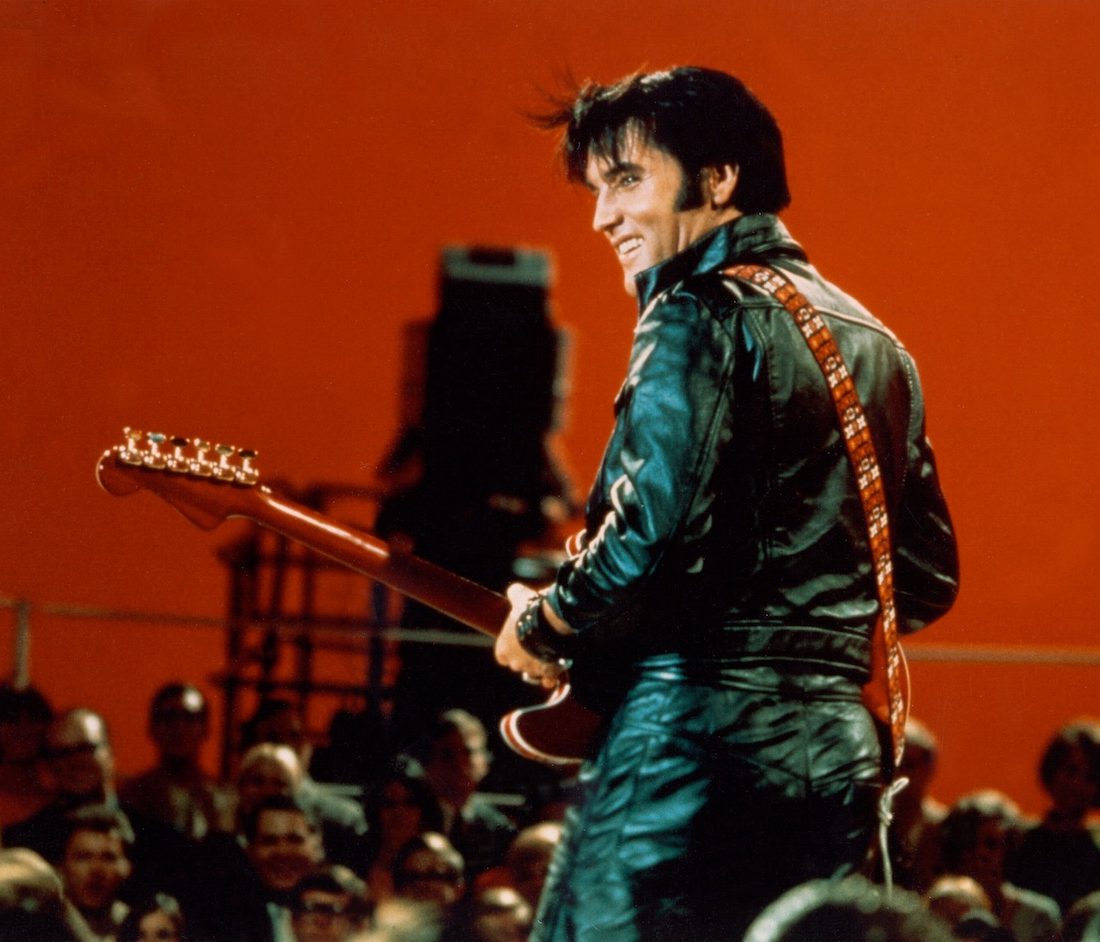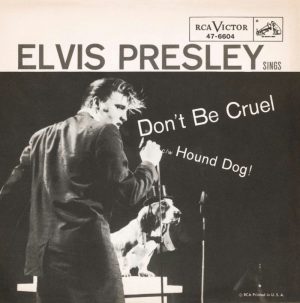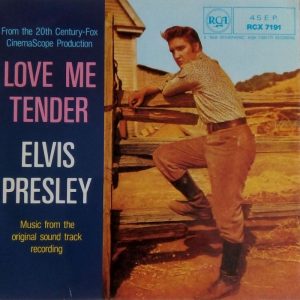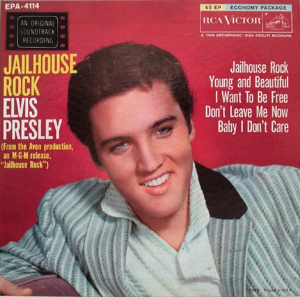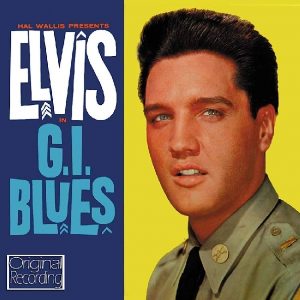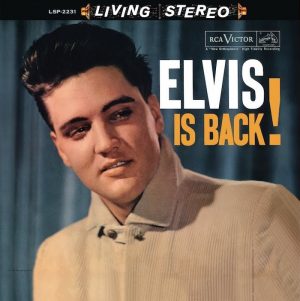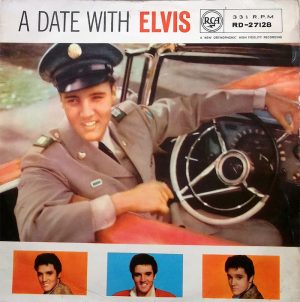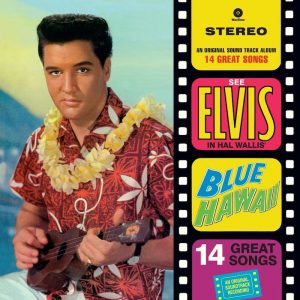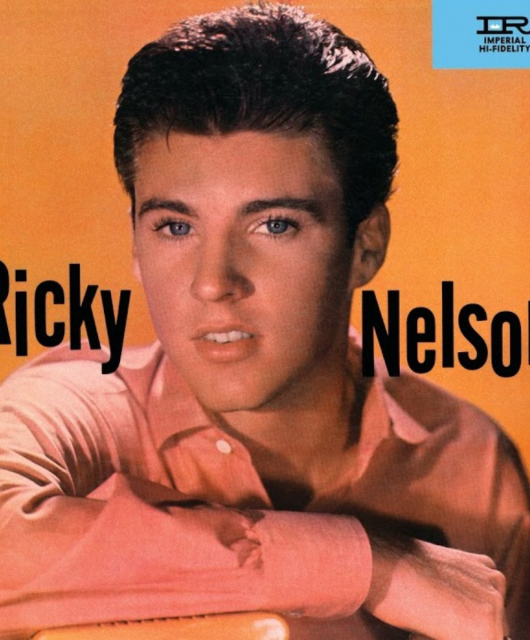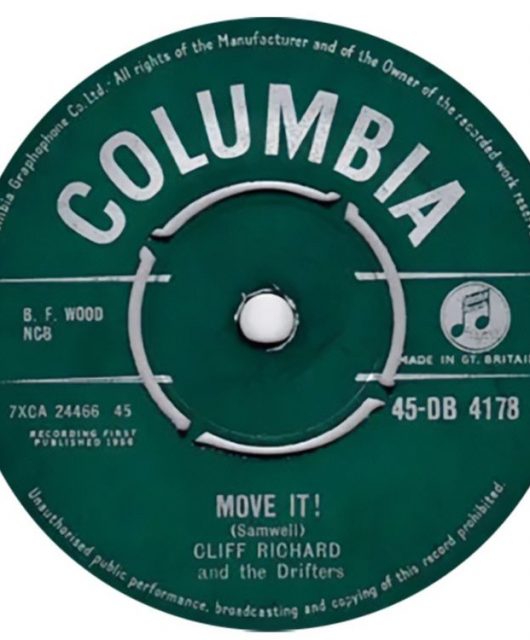Return Of The King: The Fall And Rise Of Elvis Presley is a documentary film, streaming on Netflix, which examines one of the most significant periods of the King’s storied career.
Directed by Jason Hehir (The Last Dance, Countdown: Inspiration4 Mission To Space and Murder In Boston: Roots, Rampage, And Reckoning), Return Of The King tells the story Elvis and his life leading to up to, and including, the 1968 NBC special.
This retelling of Elvis’ life covers familiar ground, Thom Zimny’s The Searcher and John Scheinfeld’s Reinventing Elvis: The ’68 Comeback both masterfully paint an in-depth picture of the man who would be King, but Return Of The King still offers a fascinating insight and benefits from access to the personal files of Elvis and the Colonel. Rarely seen footage of the 1968 Comeback Special and its rehearsals are fleshed out with fresh interviews from the likes of Darlene Love, Conan O’Brien, Bruce Springsteen, Baz Luhrmann, Billy Corgan and the late Robbie Robertson, as well as Priscilla Presley.
Tracing Elvis’ meteoric rise to superstardom in the mid-50s, Return Of The King opens with accounts of the star’s early life before delving into the complexities surrounding his relationship with manager Colonel Tom Parker.
The Mercurial Manager
With no ‘Management of Megastars for Dummies’ guide for Parker to follow, history will always reflect on how Parker was a flawed man but masterful promoter. Born Andreas Cornelis van Kuijk in Breda, Netherlands, Parker entered the United States illegally in 1929 at the age of 20. He joined the US Army but was listed as a deserter and worked as a carny with Royal American Shows, passing himself off as a native West Virginian under the name of his former commanding officer, Thomas Parker.
Parker started out in the music industry promoting Gene Austin, Roy Acuff and Ernest Tubb before finding himself in Tennessee working with country legend Eddy Arnold. He managed Arnold and helped him to become one of the most prolific hit-making artists of all time, before becoming acquainted with Hank Snow. The two formed Hank Snow Enterprises and Jamboree Attractions, a promotional outfit for up-and-coming country acts.
In 1948 Jimmie Davis, the former country singer-turned-Governor of Louisiana, granted him the honorary title of ‘Colonel’, and at that point van Kuijk left the building.
Complex Character
By early 1955 Colonel Tom Parker had set his sights on the emerging talents of Elvis Presley. The young singer recalled to Paul Wilder in 1956 that: “We more or less picked each other. The Colonel said: ‘If you want me as your manager, I will do the best I can.’ And I told him, ‘If you’d like to manage me, I’ll work for you’. It was a deal like that.” In the eye-opening interview, Parker added: “I think Presley was a star from the first day he started. I think anyone could’ve helped him that knows something about showbusiness.”
While the signing of Elvis caused an irreparable rift between Parker and Snow, it would establish a lifelong partnership between the King and the Colonel. As manager, he signed Presley to RCA Victor and arranged appearances on popular television programmes such as The Milton Berle Show and The Ed Sullivan Show.
Elvis had made his nationwide small-screen debut performing on Stage Show, a CBS programme hosted by big band leaders Tommy and Jimmy Dorsey in January 1956. He followed it up with two appearances on The Milton Berle Show. While Presley’s first performance on Berle had elicited raised eyebrows from Middle America, it was nothing compared to the furore after his second Berle gig on 5 June 1956.
“Elvis The Pelvis”
At first, everything about Elvis’ high octane performance of Hound Dog was as expected. However, towards the end, the star launched into a slow, grinding version accentuated with exaggerated body movements. His gyrations created a storm of controversy . The young audience of course screamed their approval of Elvis the Pelvis’ lusty swagger and posturing, however, to parents, the press and the pulpit, Presley represented the worst excesses of juvenile delinquency and godlessness. The storm it stirred was unlike anything Elvis had yet encountered… the King had arrived.
The Berle shows drew such high ratings that Presley was booked for an appearance on NBC’s Steve Allen Show. Allen, who was no fan of rock’n’roll, introduced a “new Elvis” dressed in a white bowtie and black tails… and the amiable star proceeded to serenade a baffled-looking basset hound, also wearing a top hat and bowtie, with the Big Mama Thornton classic. Humiliated, Presley would refer back to the Allen show as the most ridiculous performance of his career. However, one may argue that seven years slogging it out in dim-witted movies throughout the 60s could challenge that claim…
Star Quality
Early on the Colonel had signed a merchandising deal with Hank Saperstein which turned Presley into a brand name that brought in $22 million by the end of 1956. The hot new sensation was open about his desire to become a serious actor. “My ambition has always been to become a motion picture actor – a good one sir”, he told Hal Wallis, veteran producer of such classics as Casablanca and The Adventures Of Robin Hood, after the Colonel arranged a screen test at Paramount Studios in March 1956.
Believing the young singer had a magic reminiscent of a young Errol Flynn, Wallis said: “We did not sign Elvis as a second Jimmy Dean, we signed him as a number one Elvis Presley”. While appearing alongside Burt Lancaster and Katharine Hepburn in the mooted movie The Rainmaker excited Elvis, Parker thought Presley should pass, believing the part of a dim-witted teen would not prove beneficial for his career. The role would be offered to Earl Holliman who won a Golden Globe for his performance – not the last time the Colonel scuppered his aspiring actor’s dreams.
Rebel With A Cause
Wallis, who promised Presley dramatic roles and would go on to work with him on nine movies, including 1957’s Loving You and 1958’s King Creole, was unable to find a suitable vehicle for his first film. As a result, Parker took advantage of the provision in Presley’s Paramount contract to loan him out to 20th Century Fox for the tentatively titled western, The Reno Brothers. Elvis revelled in the prospect of working with producer David Weisbart whose credits included A Streetcar Named Desire and Rebel Without A Cause. Presley even went as far as learning everyone’s lines, believing that’s what all actors did in movies.
Due to his rapidly rising pulling power, studio executives decided that Presley should perform songs in what had originally been conceived as a straight role. When RCA chose one track, Love Me Tender, to be Elvis’ next single and advance sales passed one million, a further decision was made to rename the movie to match. Released in November 1956 in almost 600 cinemas, Love Me Tender grossed $540,000 in its first week. In his book Me And A Guy Named Elvis, Schilling compared his first viewing to a live concert: “The screams of the girls around me made it just about impossible to follow the story.”
Box Office Draw
While the actor expressed disappointment over having to sing in the films, his record label and manager did not. The singing roles firmly established Elvis as a box office draw and, working predominantly with the songwriting team of Jerry Leiber and Mike Stoller, the hits topped the charts. Elvis would record more than 20 Leiber and Stoller tracks, yet a falling out with the Colonel ended this partnership. In 2017’s The Seven Ages Of Elvis, Stoller revealed how Elvis requested a “pretty ballad”, and on delivering Don’t (UK No.2/US No.1), the duo felt Parker’s wrath: “It caused a tremendous uproar, because I dared to present a song to Elvis directly, without going through the proper channels. The Colonel said: ‘If you ever dare to try and interfere in the career of Elvis Presley, you will never work again in Hollywood, New York, London or anywhere.’”
Loving You, his first soundtrack album, was a US No.1; both the Jailhouse Rock EP and 45 topped the Billboard charts; and King Creole peaked at No.2, having previously enjoyed chart-topping success when released as an EP with two volumes.
Presley’s flourishing career, both on the big screen and as a singing sensation, would be curtailed when Uncle Sam called his name…
Special Services
Due to commitments at Paramount for King Creole, Presley’s initial draft date of 20 January 1958 was postponed until the middle of March. Having experienced such a meteoric rise to fame, Elvis was understandably concerned. Wondering if rock’n’roll, or the name Elvis Presley, would be remembered post-service, he channelled all his inner Brandon/Dean for the role as Danny Fisher and gave “his best acting performance to date.”
By the time the movie premiered on 2 July 1958, Elvis was deep into his military training with Company A of the Third Armored Division’s 1st Medium Tank Battalion at Fort Hood in Texas. Of course, being a pop sensation, Presley had been offered the chance to enlist in Special Services. However, Parker was more than aware how the nature of his call-up would impact on both Elvis’ career and, maybe more importantly to the Colonel, his financial flow.
As part of the Special Services, Elvis would be able to resume normal life after six weeks of training and entertain the troops throughout the year. Of course, the Machiavellian manager would never allow his client to perform for free, especially given each show would be recorded and filmed for sale to stations worldwide. No, it would be far better that the wild rocker was tamed by a healthy stint with the military.
Elvis Is Back!
Aside from a short break to record new music in June and emergency leave following the passing of his beloved mother, Presley was shipped out to West Germany secure in the knowledge that his career was in the safe hands of Parker. And true to his word, the Colonel had enough material to keep Elvis’ name alive. Between his induction and discharge, the singer scored six UK Top 10 hits, including the No.1s One Night/I Got Stung and A Fool Such As I/I Need Your Love Tonight. RCA also generated four LPs of previously issued material, including A Date With Elvis, which features a dapper G.I. Presley on the cover and a sleeve that folded out into a 1960 calendar, so heartbroken teens could count down the days until their idol returned.
While rock’n’roll survived in Elvis’ absence, Parker knew to strike while his boy was still headline news. Whisked off to Nashville, Presley set about making Elvis Is Back!, all before a date with Ol’ Blue Eyes. Since his last appearance on Ed Sullivan in 1957, Parker had decided to take Elvis off the television. However, having secured an exclusive deal with ABC for Presley’s first TV appearance in three years, Parker hoped that The Frank Sinatra Timex Show: Welcome Home Elvis would introduce his talent to a more mature audience. While Welcome Home Elvis makes for golden viewing today, it was panned at the time. The New York Times’ John P. Shanley was cruellest: “ There was nothing morally reprehensible about his performance; it was merely awful.”
No doubt Parker was mightily upset as he counted the $125,000 fee for eight minutes of screen time. Elvis was back on TV, but a return to cinema was calling…
Matinée Idol
The Sixties was a decade which would herald a dramatic change. It brought with it a sea change to politics, pop culture and music. But instead of being at the epicenter of another music revolution, Elvis was sidelined. Under the dogged guidance of manager Colonel Tom Parker, Elvis was busy making a slew of increasingly monotonous Hollywood films.
Parker, aware that movies got his boy in front of millions, secured a mammoth schedule of pictures that ensured his star would spend much of the 60s on the silver screen. Within a month of filming the Sinatra special, Presley was shooting his third Wallis-produced picture, G.I. Blues. Both producer and manager had learned lessons from Elvis’ last big-screen outings and agreed that having him sing, as often as possible, made perfect sense.
Case in point was the contrasting success of Elvis Is Back! (released 8 April 1960) and G.I. Blues (23 September 1960). While Elvis was immensely proud of the former, with fewer than 300,000 copies sold in the US, it was deemed a commercial disappointment. G.I. Blues on the other hand became Elvis’ fifth No.1. Here, the record topped the UK album chart for a total of 22 weeks and its single, Wooden Heart, also sat at No.1 for six weeks.
Lost In Transition
The leading man still harboured desires for emotional storylines that challenged his acting chops. However, when ‘straight’ roles in both Flaming Star (1960) and Wild In The Country (1961) failed to capture the cinemagoer’s imagination, Colonel Parker pushed Presley into a heavy slew of tepid rom-com musicals.
There is no doubt that one particular role would have seriously tested the screen idol’s abilities. Robert Wise’s original choice to play Tony in the 1961 Oscar-winning adaptation of West Side Story was Presley. The two star names first considered for the roles of Maria and Tony were Elizabeth Taylor and Elvis. However, the Colonel refused as Presley would only sing six of the 12 songs, and he would not have exclusive rights to the soundtrack. Instead of the streets of New York, Elvis found himself on the beaches of a Pacific island working on Blue Hawaii. Typical of the 27 formulaic flicks Presley found himself in during the 60s, Blue Hawaii was poorly received.
With three movies released every year, soundtrack albums became a big part of the contractual agreement with RCA. Towards the end of the 60s, with his 17th soundtrack album Speedway selling fewer than 100,000 copies and occupying a lowly No.82 on the Billboard chart, RCA execs raised concerns. As Return Of The King concedes, it was a tragic time for the King of Rock’n’Roll. Parker, however, had already shifted his gaze back towards television…
Catching A Falling Star
Seven years chasing the movies had seriously damaged Elvis’ reputation. In October 1967, Parker proposed a deal for a Christmas TV special to NBC. Striking a contract worth $1,250,000, 1968’s Singer Presents… Elvis not only proved incredibly lucrative but resulted in what many consider to be the greatest rock’n’roll performance ever televised.
“Elvis was hardly ever nervous,” drummer DJ Fontana told Rolling Stone. “But he was then. We played a couple of songs, and it got loose after a while, and it turned out fine. He just had been out of the public eye for a long time.”
Clad head-to-toe in black leather, you witness the anxiety lift as Elvis launches into the sit-down session of That’s All Right alongside Moore and Fontana, guitarist Charlie Hodge and percussionists Alan Fortas and Lance LeGault. “Wait there’s something wrong with my lip,” Presley jokes during Baby What You Want Me To Do. “I did 29 pictures like that,” he added with a curled lip and knowing wink.
Two days later, the stand-up section was filmed. A late addition to the set and replacing Parker’s seasonal request of I’ll Be Home For Christmas, was the Walter Earl Brown-penned If I Can Dream. Echoing Martin Luther King Jr.’s 1963 I Have A Dream speech, Parker claimed: “This ain’t Elvis’ kind of song.” Presley pleaded otherwise and, after a performance of pure emotion in front of that iconic ELVIS red lighting and black backdrop, Parker relented. Now known as the ’68 Comeback Special, you can see that trademark twinkle in Elvis’ eyes throughout.
Return Of The King
The triumph of the ’68 Comeback Special is where Netflix’s Return Of The King concludes. It doesn’t explore Presley’s Vegas years or his premature passing – it doesn’t need to. It simply examines the furore and chaos of the 1960s through the lens of one of America’s most indelible cultural icons.
Elvis’ rags-to-riches story is one littered with ifs, buts and maybes, but it remains one perfectly primed for Hollywood and soundtracked by some of the inspiring tracks ever committed to wax. The ’68 Comeback Special, is a crowning glory in the King’s glittering crown and the story is one worthy of a retelling. Return Of The King, on the whole, offers nothing new for fans – but it does provide a neat snapshot reminder of just how majestic Elvis could be or, at the very least, introduce a whole new generation to the power and glory of Elvis Presley and why we call him the King.
Return Of The King: The Fall And Rise Of Elvis Presley is streaming on Netflix, click here
Want more Elvis? Pick up a copy of Vintage Rock Presents: Elvis The Ultimate Album Guide

